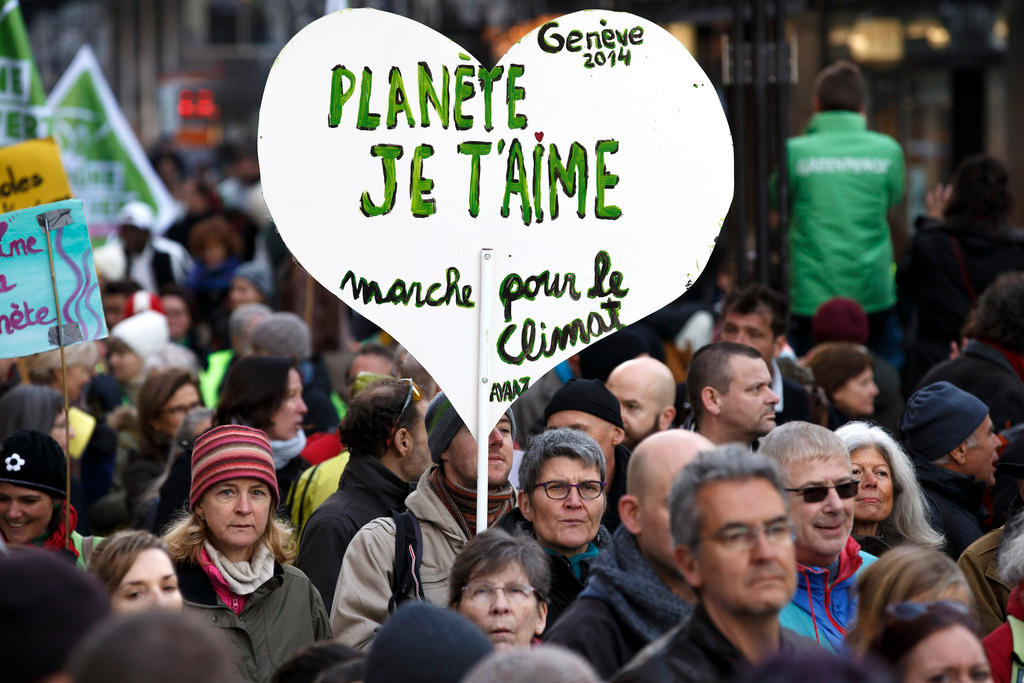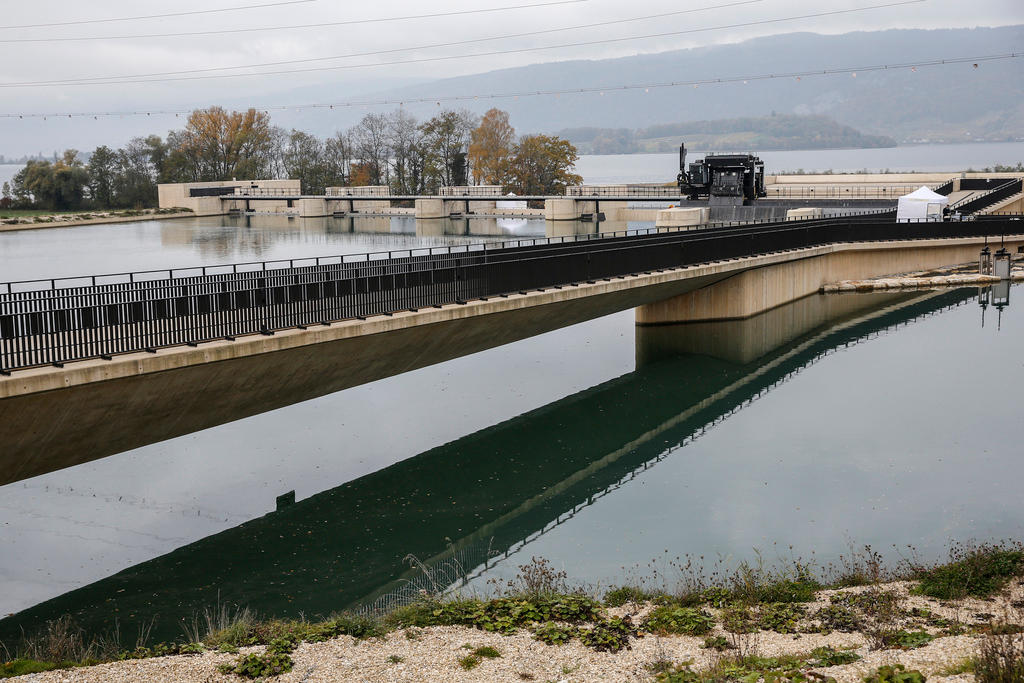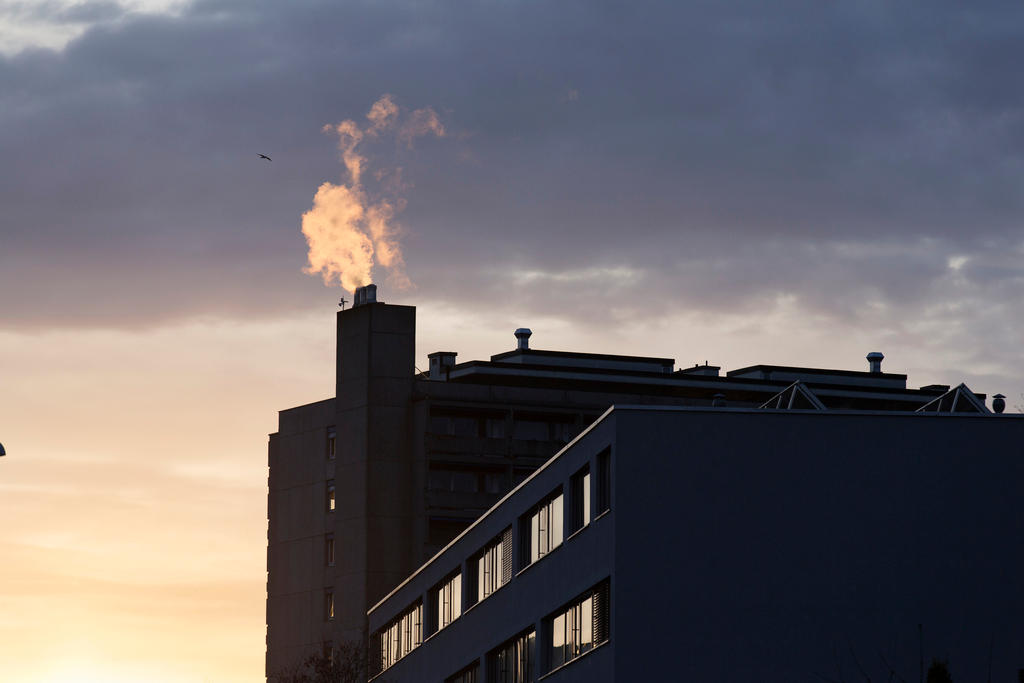Swiss parliament approves global climate deal

The Senate has ratified the historic Paris climate accord, committing Switzerland to reducing its greenhouse gas emissions by 2030. But heated debates are expected in the next few years about the implementation of concrete measures.
Following the House of Representatives, which voted on the issue in March, the Senate on Wednesday overwhelmingly endorsed the international accord.
Several speakers form the political left to the centre didn’t hesitate to criticise – or at least express disappointment – at US President Donald Trump’s recent decision to pull his country out of the agreement.
Switzerland has now become the 149th country in the world to ratify the Paris accord, agreed on by 195 countries at the COP21 climate conference in December 2015.
During Wednesday’s debate, Environment Minister Doris Leuthard admitted that the targets set out by the accord were ambitious. In the next 12 years, they aim to reduce CO2 output by 50% compared with 1990 levelsExternal link.
Ambitious goals
“It makes sense to set high goals in politics,” said Leuthard, adding that the agreement offered welcome opportunities for technical innovation in Switzerland.
As part of the Paris deal, at least 30% of the greenhouse gas cuts have to be achieved in Switzerland itself, while the remainder can be tackled with projects abroad. For its part, the European Union set a target of 40% for domestic cuts.
Opponents, notably from the rightwing Swiss People’s Party, argued in the Senate that Switzerland has already been doing enough and a deal was unnecessary.
Roland Eberle, a People’s Party senator from canton Thurgau, called for a more realistic approach and to stop the “daydreaming” since the goals of the Paris accord are not binding. It obliges countries to take measures for CO2 reductions and present regular progress reports, but foresees no sanctions.
Most other major political parties in Switzerland have welcomed the government’s strategy.
Parliament is due to debate concrete measures as part of a legal amendment reform to be presented by the government before the end of this year.
They include an increase in taxes on CO2 emissions from fossil fuels (such as heating oil and natural gas), tougher technical regulations for cars and possibly a ban on the use of non-renewable energy sources for heating purposes.
Possible challenges
The People’s Party said it was also considering challenging the legal reforms with a nationwide vote. However, a previous referendum forced by the rightwing party against the government’s Energy Strategy 2050 failed a win a majority at the ballot box in May.
Several senators pointed out during Wednesday’s debate that the Paris accord very much aligns with Switzerland’s own interests.
Even though its greenhouse gas emissions account for just 0.1% of global output, wealthy Switzerland is among the hardest hit victims when it comes to global warming. Average temperatures in Switzerland rose 1.8°C annually over the past 150 years, nearly two times overall global levels.
The Paris Agreement at a glance
The agreement, which replaces the Kyoto protocol of 1997, sets an objective to limit warming to “well below 2°C” and calls for “continuing efforts to limit the increase to 1.5°C” compared to the pre-industrial era. It also provides for a review of mandatory commitments “every five years” from 2025, as well as increased financial assistance to southern countries.
Aid to developing countries, which should reach $100 billion annually by 2020, is expected to be revised upwards. This reflects a long-standing demand by these countries.
The Paris Agreement must allow for the reorientation of the world economy toward a low-carbon model. This revolution implies a progressive abandonment of fossil resources (coal, oil, gas) that dominate global energy production. It also requires an increase in renewable energies, vast energy savings or increasing protection of forests.

In compliance with the JTI standards
More: SWI swissinfo.ch certified by the Journalism Trust Initiative








You can find an overview of ongoing debates with our journalists here. Please join us!
If you want to start a conversation about a topic raised in this article or want to report factual errors, email us at english@swissinfo.ch.